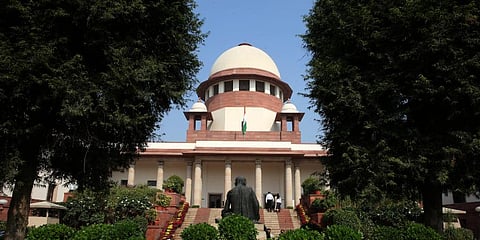

NEW DELHI: The Supreme Court on Friday refused to entertain a couple of fresh petitions challenging the constitutional validity of the Waqf (Amendment) Act, 2025, with Chief Justice of India B.R. Gavai remarking, “Everybody wants his name to be in the newspapers.”
A bench comprising CJI Gavai and Justice Augustine George Masih said it would take up the matter already listed for hearing on May 20. When one of the fresh petitions was mentioned, Solicitor General Tushar Mehta, appearing for the Centre, objected to it, saying there could not be an “endless stream” of pleas challenging the Act.
The counsel for the petitioner submitted that he had filed the petition on 8 April and had removed the defects pointed out by the apex court registry on 15 April, but the plea had not yet been listed for hearing.
“Everybody wants his name to be in the newspapers,” the CJI observed. When the lawyer requested that his plea be tagged along with the pending petitions, the bench said, “We will decide that matter.”
The bench promptly dismissed the petition. Another similar plea brought up later was also summarily rejected with the remark, “Dismissed.”
When the petitioner’s counsel sought permission to intervene in the pending matters, CJI Gavai responded: “We already have too many intervenors.”
On 17 April, the apex court had decided to hear only five of the total number of petitions filed before it. The bench said it would consider arguments on 20 May to pass interim directions on three key issues: the power to denotify properties declared as waqf by courts, waqf-by-user or waqf by deed.
The second issue raised by the petitioners pertains to the composition of state waqf boards and the Central Waqf Council. The petitioners contend that only Muslims should be members, excluding ex-officio positions.
The third issue concerns a provision which states that a waqf property will not be treated as such if the collector, after inquiry, determines that the property is government land.
On 17 April, the Centre assured the top court that it would neither denotify waqf properties, including “waqf by user”, nor make any appointments to the Central Waqf Council and state waqf boards until 5 May.
Subsequently, on 25 April, the Union Ministry of Minority Affairs filed a preliminary 1,332-page affidavit defending the Waqf (Amendment) Act, 2025, and opposed any “blanket stay” by the court on “a law having presumption of constitutionality passed by Parliament.”